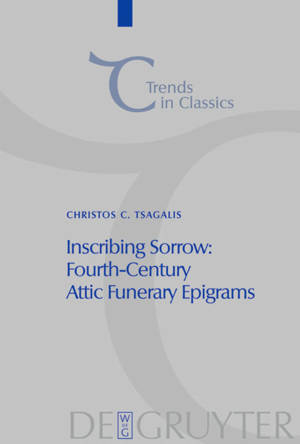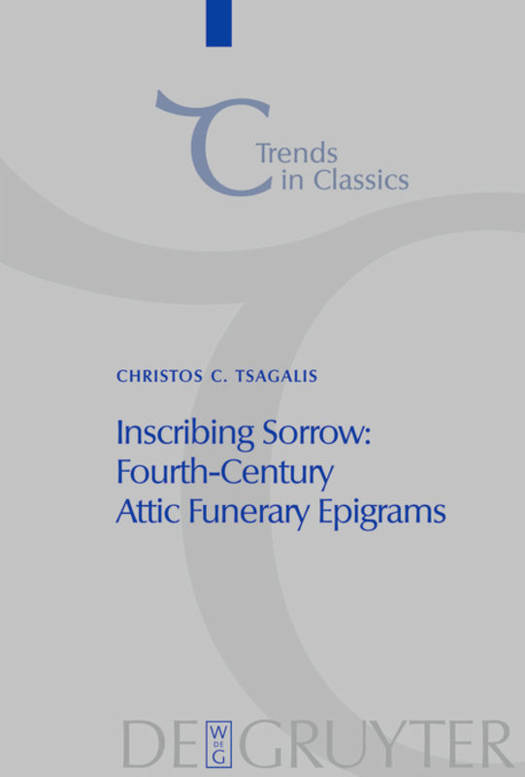
- Retrait gratuit dans votre magasin Club
- 7.000.000 titres dans notre catalogue
- Payer en toute sécurité
- Toujours un magasin près de chez vous
- Retrait gratuit dans votre magasin Club
- 7.000.0000 titres dans notre catalogue
- Payer en toute sécurité
- Toujours un magasin près de chez vous
Description
Fourth-century Attic grave epigrams reflect a transitional phase in the evolution of the genre of epigram. They testify to a shift of interest towards social issues such as the family, the deceased's age and profession. In a turbulent period of restlessness and uncertainty that followed the devastating Peloponnesian war, the commemoration of the departed in private monuments became an effective mechanism of displaying publicly a new set of social concerns.
It is within these contexts that special emphasis has been put on the composition of sepulchral epigrams, their gradual autonomization and sophistication. This book explores this decisive phase in the evolution of the epigram by reconstructing as many ancient contexts as possible on the one hand, and studying sepulchral epigrams as a poetic art on the other.
Spécifications
Parties prenantes
- Auteur(s) :
- Editeur:
Contenu
- Nombre de pages :
- 382
- Langue:
- Anglais
- Collection :
- Tome:
- n° 1
Caractéristiques
- EAN:
- 9783110201321
- Date de parution :
- 16-01-08
- Format:
- Livre relié
- Format numérique:
- Genaaid
- Dimensions :
- 160 mm x 231 mm
- Poids :
- 657 g

Les avis
Nous publions uniquement les avis qui respectent les conditions requises. Consultez nos conditions pour les avis.






